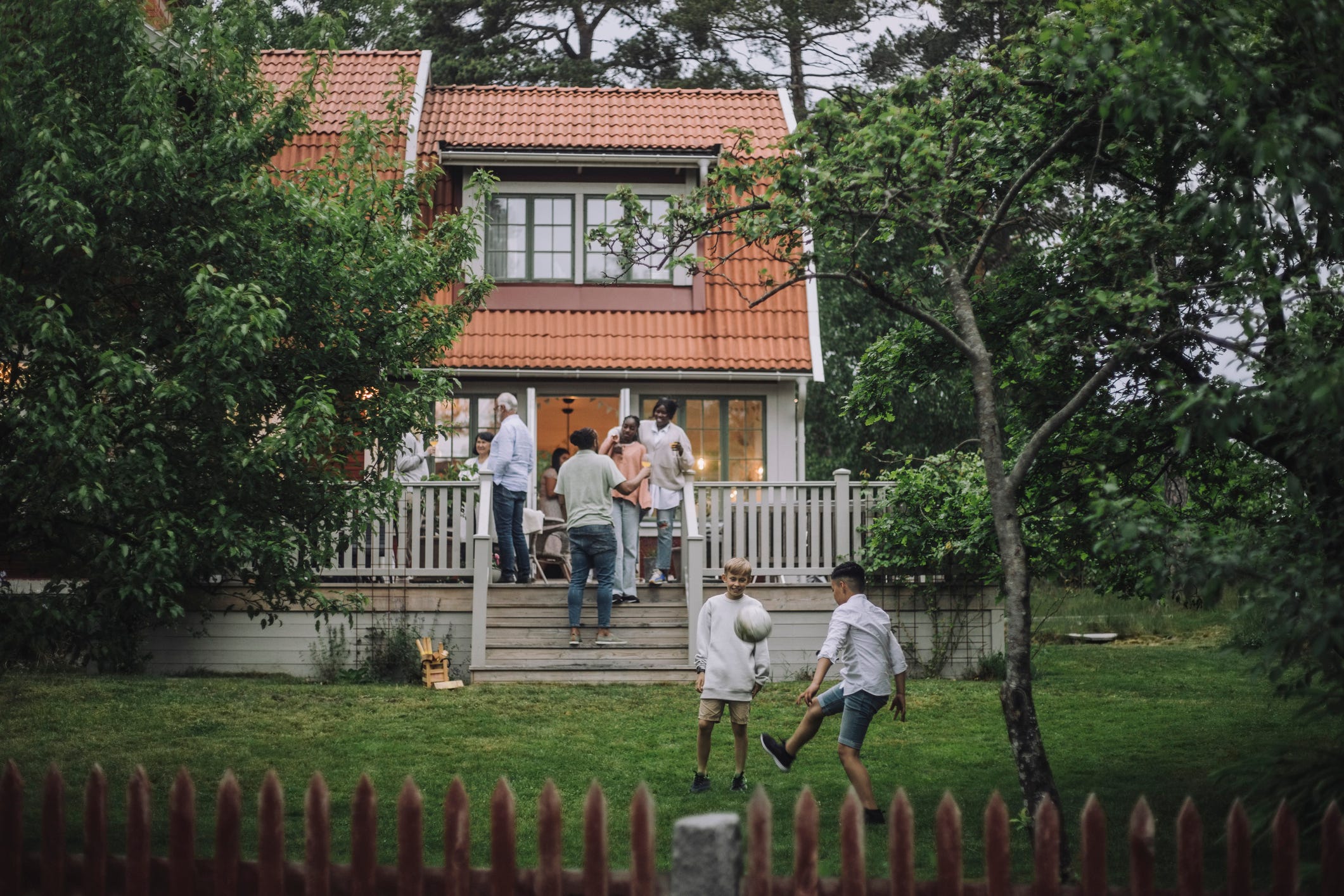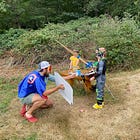My primary memories of childhood are of boredom, of reading, of Star Trek: The Next Generation, of endless hours at the pool — and of my parents hanging out. We did plenty of stuff as a family, but the weekends were always a mix of us going to other people’s houses or them coming to ours (or us at home with a babysitter while my parents went elsewhere). The most common scenario would involve all of the kids sequestered in one area (outside, the basement, a TV room) while the parents dominated another. There were adults from church and adults who lived next door and adults from both of my parents’ workplaces. Some of them were the parents of my friends, but that was mostly happenstance. We went out on the river; we went camping; we babysat the young kids and made “spy notebooks” where we’d collect observations on what the parents were doing upstairs (mostly: grilling, drinking Coors Light, changing the cassette or CD). Being in the homes of adults who weren’t family — and having a lot of people in ours — was part of the weekly and even daily rhythm of our lives. Some of that had to do with the fact that we’d moved to a small town in North Idaho thousands of miles away from my parent’s extended family, and some of it was my parents’ personalities, but some, too, was the era: there was no compulsion to spend the weekends taking us to, say, semi-elite basketball tournaments. Not that any of the kids in this group would’ve been the sort of kid to do that sort of thing, but who knows, in a different era, maybe. There was far less pressure to engage in bourgeois intensive parenting practices, which meant kids’ schedules rotated around their parents’ social calendars, not the other way around. Which is all to say that as I grew up, I observed my parents cultivating networks of strong and loose social ties. I saw them in community. And even though the cultivation of that community was far more complicated and intermittently fraught than my childhood self could understand, it did normalize practices and rhythms and priorities that I reflect on regularly, both here in the newsletter and in my upcoming book, Friend Group. A few months ago, I told you about some of the stories I’d begun collecting from people about how they’re consciously building community and friendship — through proximity, through saying yes, through consistency. Since then, I’ve done several dozen more interviews (we’re now over 65! and I still need to schedule so many more!) and something I started doing by accident has become ritual: I start every interview with the same question. Did your parents model friendship or community for you when you were growing up? Put differently, did your parents have friends? I love how this question throws people. They’re so ready to come and talk about their own friendships — not their memories of their parents. I wish I could make a supercut of how many times the immediate response has been WOW, WHAT A GOOD QUESTION. And I don’t mean this as self-flattery, but it is a good question! And, I’ve found, a really great way to start an interview: you get to enter their life through the side door. Now that I’ve heard 65+ answers to this question, here are some recurring themes:
So what about you? Did your parents have friends? Do you have memories of them in community? What was explicitly and implicitly modeled for you when it came to being a part of other people’s lives? And if you have kids, or you’re a significant person in a kid’s life, what would they say about you? If you don’t like the answer, how would you like it to change? ● If you’re not yet a paid subscriber and want to read or join in the conversation — and get all the other perks that comes with subscribing, including this week’s Things I Read and Loved and the knowledge that you’re paying for the stuff you find valuable — just click below: Further Reading: Subscribe to Culture Study to unlock the rest.Become a paying subscriber of Culture Study to get access to this post and other subscriber-only content. A subscription gets you:
|



